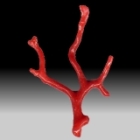Don't Pick Flowers 🌹, Pick Organs 🫀!
-
Flowers wilt 🥀, chocolate melts, but organ plushies are Forever!
Valentine's Day is coming, and you have the perfect Valentine's gift for
the one who st...
Sunday, July 22, 2012
Saturday, July 21, 2012
Wednesday, July 18, 2012
Tuesday, July 17, 2012
Monday, July 9, 2012
Lady Macbeth's Period
In her article, "A Strange Infirmity," Jenijoy La Belle points out that Lady Macbeth, in preparing to murder Duncan in order to assure a certain line of kingship, asks a preternatural being to allow her menstruation to stop, assuming, psychologically, that it will make her less "feminine" and able to do the deed. Very interesting read indeed.
Note that the dress in this picture, as it exists today with the beetle wings all over being refurbished, is included in an earlier post from last spring.
John Singer Sargent, Ellen Terry as Lady Macbeth, 1889, Tate Gallery, London
Note that the dress in this picture, as it exists today with the beetle wings all over being refurbished, is included in an earlier post from last spring.
Saturday, July 7, 2012
Cellini's Blood
Michael Cole's essay Cellini's Blood posits that the blood spewing from Medusa's neck in Benvenuto Cellini's mid-16th-century bronze at the Piazza della Signoria in Florence--and that dripping and coagulating from her neck--evokes coral. Coral was thought to have come either from Medusa's ichor itself or from seaweed that was petrified by her gaze and turned red from her blood. The significance is how it relates to bronze and the art of casting, looking especially at Cellini's dramatic autobiography and also enhances the value of the gift--coral being precious and acting as a periapt--being presented by Perseus to the citizens of Florence.
Friday, July 6, 2012
Science Florentine
One room of Susini's wax anatomical models at La Specola.
A model of the bicep at the Museo Galileo in Florence
One of Susini's famed Venuses
An armillary sphere by Antonio Santucci at the Museo Galileo
Early thermometers at the Museo Galileo
"Wine for Women"

The "baby hatch" at the Ospidale degli Innocente. The grate was made just this size so that only newborns could pass through.
A wax depicting the plague at La Specola
A larger view of the "baby hatch" at the Ospidale. The building itself was designed by Brunelleschi, the architect of the famed Duomo in the heart of Florence
A wooden model of a fetus in utero at La Specola
A relic at San Lorenzo in Florence
Subscribe to:
Comments (Atom)






















